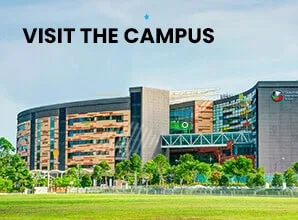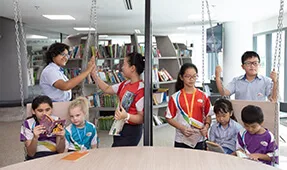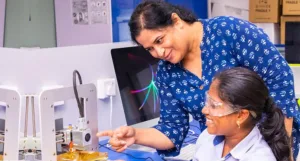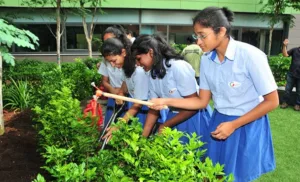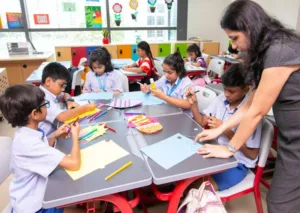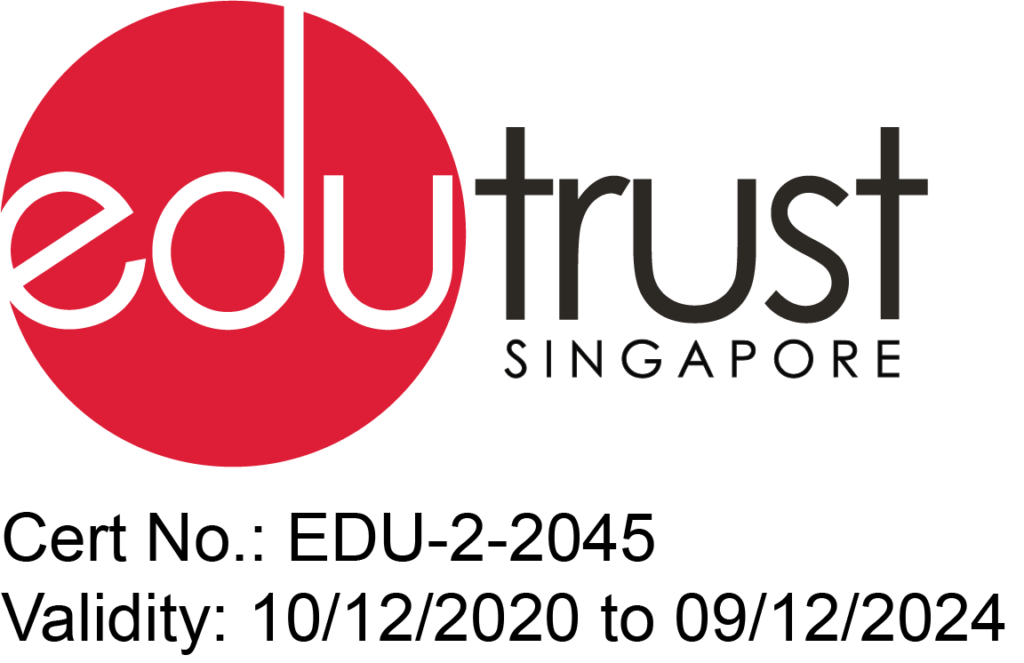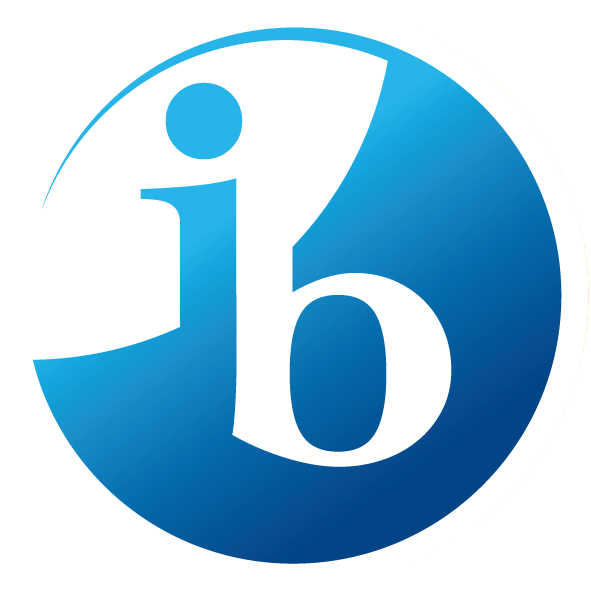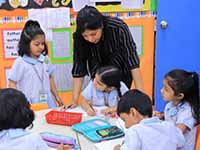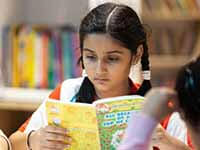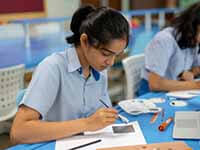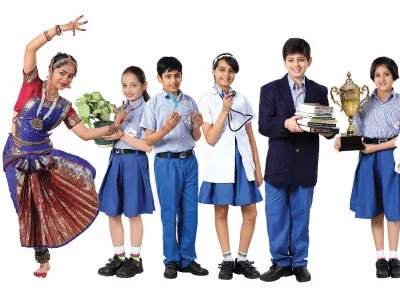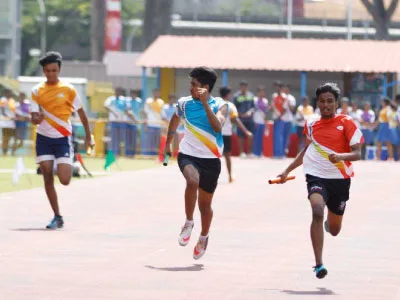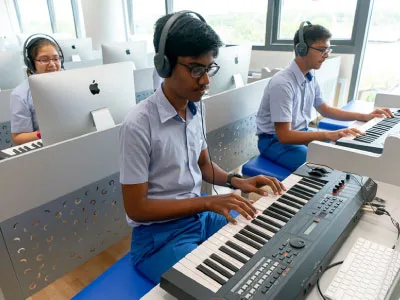Parents want the best for their children, and one of the most important things on this list is education. Every parent strives to provide their child with the best possible education. With academic rigour causing stress in students, parents are looking for an education system that helps their children learn in a fun and happy way.
This is why International Baccalaureate, the world-renowned inquiry-based curriculum, is getting more popular among parents for its self-learning methodology, curiosity-driven teaching system, and a different approach to assessment that eliminates the stress of marks.
Many international schools impart the IB programme which gives students exposure to a plethora of possibilities for educational, cultural, and personal growth. The schools also provide a wonderful, wholesome environment for students to grow.
What is IB?
International Baccalaureate is an intelligent blend of inquiry-based and interdisciplinary learning, which enables holistic growth among students. Schools have the flexibility of designing the programme offered by them as long as the approach and outcome are strictly adhering to the IB philosophy.
For elementary school students, the IB has a popular programme called Primary Years Programme which caters to children aged 3-11 years. It emphasizes developing a child’s personal, emotional, social and intellectual skills which makes them inquisitive, curious, yet respectful and socially responsible individuals.
Under PYP, teachers collaborate with their students and teach them to take control of their learning. They encourage students to be more confident, motivate them, and broaden their experiences in primary school.
Read more about the: IB program and good IBDP Singapore schools.
IB PYP Methodology
IB approaches to learning PYP. The IB curriculum takes up a knowledge-oriented approach, which aims to create a curriculum framework that is engaging, relevant, challenging and significant for learners of Grades 1 to 5. The curriculum framework is transdisciplinary, which means it focuses on issues that go across subject areas.
Students inquire into and learn about globally significant issues in the context of a Unit of Inquiries. Each of these units addresses a central idea relevant to a particular transdisciplinary theme.
● Language
● Social Studies
● Mathematics
● Arts
● Science
● Personal, Social and Physical Education
The units covered provide context for much of the learning in languages and mathematics as well as all content within science and social studies Students participate in additional language sessions each week. Students can learn Mandarin or any other language provided by the school as part of the curriculum.
The aim is to engage students to become:
● Inquirers
● Thinkers
● Knowledgeable
● Caring
● Balanced
● Communicators
● Risk-takers
● Principled
● Open-minded
● Reflective
Within this context, studying IB can be an interactive and fun approach based on the methods employed by the school and the teaching staff.
Make Them Inquirers and Thinkers
Students of Elementary International Schools have a lot of fun integrated into their learning program. Introducing science can be a fun activity where they are taught about living things, earth and space, matter and forces of energy through practical and simple homemade experiments.
For example, A simple technique of blowing up a balloon can teach a child a lot about force, matter and the concept of space. Similarly, everyday materials like pens, paper, iPads etc can teach about the matter, energy like electricity and its uses in everyday life. Nature-based classrooms, like those in GIIS, can be useful to teach them about living things like flora and fauna.
Make Them Knowledgeable
Some schools keep aside a one-hour library session each week for students where they are allowed to borrow two books at a time. Books may be exchanged throughout the week as needed.
Students will be taught library etiquette and procedures while through story elements, author and illustrator studies, they are introduced to different genres of storytelling.
Open-Minded and Creative Communicators
Elementary schools also employ a variety of fun activities to teach students to be open-minded, communicate well with others and express themselves.
For example, concepts like Art lessons teach them about creativity, self-expression and imagination. Learners look into various art elements including line, direction, shape, size, colour, tone and texture as they are engaged in different art experiences.
The students also exhibit greater control and purpose in their use of media and respond reflectively to their own and other students’ artworks which makes them collaborative and appreciative of other people’s work.
Make Them Caring and Balanced
PYP students often engage in field trips and activities that take them outdoors to explore places for themselves. Instead of learning about animals from textbooks, teachers take them to the zoo and help them safely interact with the animals. Instead of teaching them about climate change, teachers engage them in sapling planting activities, cleaning of beaches, making compost or recycling things.
Students who are taught conservation of water or reuse of old things, tend to learn about preserving the planet and environment in a more effective and fun way, than by just textbook learning. These activities also help them reflect on their environment and self-practice and help them improve themselves for the greater good.
Risk-Taking
Encouraging sports and innovative activities in PYP students helps them take risks without the fear of failure. Through sports, students build on the essential skills and rules to participate in games that require teamwork and team spirit.
Extra-curricular activities that include throwing, catching, fielding, striking/batting help them be sharp, nimble and think quickly on their feet.
Teachers also introduce them to lego bricks and simple concepts of coding and robotics which help them construct instruments like vehicles of weight lifters which will help them innovate from a very young age.
These and many other methodologies, teach students the essence of what it means to be human. It makes students connect to their inner selves, their beliefs, and values. These values also remind students of elementary schools to be accepting of all communities and cultures.
Students learn about how to truly express themselves. They talk of discovering ideas, cultures, beliefs, nature, societies, and communities. The students learn more about all of these and then form an opinion which they choose to express.
This expression is done in a courteous, honest, non-controversial manner. Students also learn about extending their creativity, appreciating what appeals as aesthetic to them, and using these to help express themselves as well.
Students also learn about the rules of the natural world and its relation to humans. It also teaches them about human nature, how people behave and interact with one another, how science and the understanding of scientific concepts are used to enhance technological growth.
All of this and more is taught to students of the IB program in an extremely fun and interactive way. It makes them want to learn more and know more about anything and everything beyond the world of academics. The students of I.B. schools see a lot of different methods of teaching that come their way. All of them are interesting. Each one is different from the last.
Kids in elementary school PYP programs are taught about human values at an early age, along with basic life skills and their usual academics, so that they can learn how to make their own, smart decisions.

